New PLC Topics for Teachers in Ghana and NTS 2025
PLC Topics for Teachers in Ghana and the NTS; Explore Classroom Activities to incorporate in class for high student engagement. Also, Check out Fun Games you can try in Class.
Kindly take your time and go through
Professional Learning Community(PLC) and FOI. Highlights of the CCP Training
YOU CAN JOIN OUR TELEGRAM OR WHATSAPP OR FACEBOOK PAGES
A professional learning community or PLC, is a group of Teachers that meets regularly, shares expertise, and works collaboratively to improve teaching skills and the academic performance of the students.
The Facilitator for the PLC activities is called the Curriculum Lead
Talk about Lesson design and Classroom Activities
Incorporate these activities in the classroom to prevent Learners from Sleeping during the lessons and also to highly engage learners’ participation.
- Lesson Design Module:
- Introduction to Backward Design
- Incorporating ‘Assessment for Learning’ and ‘Assessment as Learning’
- Understanding Summative and Formative Assessment Strategies
- Teacher Attributes Affecting Student Learning:
- Exploring key components, learning indicators, and procedures
- Encouraging students to take control of their learning by sharing learning indicators
- Engaging Classroom Activities:
- Learning Partners
- Numbered Head
- Comprehension Rating Task
- Pass That Question
- Two Minutes Pause
- Say Something
- Inside Outside Circle
- Exit Card Strategy
Engaging Classroom Activities: The first cohort introduced various activities, such as Learning Partners and Numbered Head, to foster engagement and collaborative learning.
1. Learning Partners:
Transform your classroom dynamics by implementing a slight modification to the traditional grouping system. Here’s how:
- Select five or more items (e.g., tourist sites, places, scientists, elements).
- Examples:
- Kakum National Park
- Mole National Park
- Cape Coast Castle
- Boti Falls
- Direct learners to write these items at the beginning of their notebooks.
- Encourage them to find learning partners for each item by writing their names against it.
- Example:
- Kakum National Park – John
- Mole National Park – Rose
- Cape Coast Castle – Gunu
- Boti Falls – Sena
- Assign tasks and instruct learners to move to their designated groups (e.g., Cape Coast Castle Friends, Boti Falls Friends) for collaborative assignments.
3. Numbered Head:
Keep learners on their toes by incorporating the numbered head strategy:
- Ask learners to number themselves from 1 to 5 based on class size.
- Form groups based on numbers and assign tasks or discussions.
- Alternatively, have specific numbered individuals stand to explain concepts, keeping all learners active and attentive.
- Eg; Why is it important to Measure accurately, Pause. Ask all 1s to be on their feet to answer.
4. Comprehension Rating Task:
Boost comprehension by implementing a rating task:
- Provide a paragraph and have learners rate their understanding.
- Repeat for multiple paragraphs to gauge overall comprehension.
- Give students a paragraph and have them rate their comprehension in terms of how well they can explain it to their partner, repeat for more paragraphs.
5. Pass That Question:
Promote interactive learning through question-and-answer activities:
- Instruct learners to write a question related to the topic.
- Pass the question to a colleague to answer or have them guess the question based on the provided answer.
6. Two Minutes Pause: Encourage reflection and reinforce learning:
- Pause after a brief teaching segment.
- Pose questions about the content covered, allowing students to recall and discuss their understanding.
7. Say Something: Facilitate active participation:
- allow learners to express their thoughts about the material they’ve just read or discussed.
8. Inside Outside Circle: Ensure comprehensive understanding through a dynamic evaluation method:
- Organize learners into two circles, with one inside the other.
- Pose a question and have learners share answers by rotating in opposite directions.
- This strategy involves everyone, fostering an inclusive learning environment.
- Go out with learners and ask them to number 1 to 2. Let ones stand inside, forming a circle, while all twos form another circle outside, facing the ones. Stand in the center and ask a question. Allow the ones to tell the twos the answer, then have them move a step to the left or right and repeat the answer they heard to the other person. This is a way of evaluating your lesson by involving everyone.
9. Exit Card Strategy: Be available to learn how this and many others work.
Explore further strategies for professional development, certificates, and educational points.
Embrace these strategies to create an interactive, engaging, and enriching learning experience for both educators and students. Elevate your classroom dynamics and witness the transformative power of collaborative learning!
Guidelines and Expectations
The membership of the PLC(HoS, CL, other staff) in consultation with key stakeholders(SISO, PTA/SMC, etc).
Agrees on the PLC sessions( or meetings) schedules for the semester or term.
Identifies for the PLC sessions individual challenges in effective lesson delivery and innovative practices in teaching.
Creates a common platform for members to share ideas, skills, knowledge, and experience.
Identifies and invites good and willing facilitators for each session.
Keeps record of attendance of members during PLC meetings.
Sets SMART goals for best practices in the school to meet expected performance outcomes and targets.
Benefits of PLCs
- Improves the skills and knowledge of educators through collaborative study, expertise exchange, and professional dialogue
- Builds effective team spirit
- Improves trust among colleagues
- creates an enabling environment for openness and sharing of new ideas and resources.
- You get CPD Points
- How to Download your NTC CPD Transcript
- What is a Statement of Professional Standing, How to Apply, and Requirement From NTC
Challenges
- Some challenges include Facilitators not taking part in the PLC
- Disrespect among Colleagues
- Unsolved problems
You can add Your C[wpdiscuz-feedback id=”d2i49gu8p4″ question=”Please leave a feedback on this” opened=”1″][/wpdiscuz-feedback]hallenges
How do we overcome the challenges
- Getting everybody to participate fully and actively in PLC activities
- Building mutual respect among colleagues and sharing personal challenges and experiences.
- Finding solutions to identified problems on time.
Curriculum Lead
- Develops agenda, schedules, and leads PLC meetings
- Facilitate meetings, Prepare reports, and keep PLC records.
- Collates challenges of teachers and in consultation with the head of school arranges for resource persons.
- work closely with colleagues in building formidable leadership teams and learning school
- sustains the changes process required to operate as a PLC
JHS/SHS Teacher
- Participate actively in all PLC sessions and activities
- Implement the CCP Curriculum, prepare a scheme of lessons according to specification, and keep track of challenges or difficulties encountered
- Try new teaching, strategies and practices discussed during PLC sessions and share challenges and success stories with colleagues.
Extra Topics for PLC Sessions
SHS
Senior High Schools in the country have been provided with a manual to assist in guiding their Professional Learning Community (PLC) sessions. These sessions are held weekly, either in one session or two, to cover a specific topic.
Although the schools are provided with a manual for PLC sessions, they still need to adhere to the rules set for these sessions.
The purpose of PLC sessions is not to re-teach teachers what they already know, but to facilitate professional growth and support among colleagues, allowing them to act as agents of change and support for one another.
SB-PLC School Based PLC
At the senior high school level, PLC sessions are typically school-based. However, each department within the school may also organize its own PLC sessions to address internal departmental issues. Usually, the heads of departments (HoDs) act as the curriculum leads for these sessions.
DB-PLC Departmental Based PLC
Some schools also organize Cluster Base PLC sessions, where multiple teachers who teach the same subject at the same level (e.g., SHS 1 Social Studies, Science, or English Teachers) meet to share ideas, and notes, and discuss the duration needed to complete a particular topic. This ensures that no teacher feels isolated, and they can similarly teach the material. Afterward, they reflect on what happened during the previous topic and move on to the next one.
This allows the HoDs to stay informed about the progress and challenges in various aspects of the curriculum.
PLC sessions also provide an opportunity to review the chief examiners’ reports and recommended remedies.
The curriculum lead takes the time to review each topic, helping teachers who may struggle with certain strands or sub-strands.
These teachers are either given the necessary support to teach the topic or other colleagues step in and teach for them while they work on mastering that area.
PLC sessions in Senior High Schools are crucial for professional development and collaboration among teachers. It ensures that teachers are equipped with the necessary knowledge and support to deliver quality education to their students.
For The National Teaching Standards and PLC Handbook Volume 1.
SHS Lesson Plan Template should contain
SUBJECT:
WEEK;
WEEK ENDING;
FORM;
TOPIC;
SUBTOPIC:
OBJECTIVES;
RELEVANT PREVIOUS KNOWLEDGE (RPK):
REFERENCES:
TEACHING AND LEARNING RESOURCES (TLRs):
KEYWORDS:
CORE COMPETENCIES:
INTRODUCTION:
TASK/ACTIVITIES:
CORE POINTS:
EVALUATION:
REMARKS:
Scroll down
Basic Schools
In Basic Schools, NaCCA provides a Guide for PLC sessions; however, it does not specify specific topics like in the Senior High Schools (SHS).
Nevertheless, as a curriculum lead, there are several topics worth exploring during PLC sessions. Here are a few examples:
1. Effective teaching strategies for literacy and numeracy development.
2. Integrating technology into the classroom.
3. Differentiated instruction to meet the diverse learning needs of students.
4. Assessment and feedback methods to enhance student learning.
5. Collaborative learning strategies to promote student engagement.
6. Developing critical thinking skills in students.
7. Strategies for promoting inclusive education for students with special needs.
8. Culturally responsive teaching practices to create an inclusive and respectful learning environment.
9. Effective classroom management techniques.
10. Strategies for fostering positive parent-school partnerships.
11. Incorporating project-based learning into the curriculum.
12. Promoting social-emotional development in students.
13. Updating and aligning curriculum materials with the National Teaching Standards (NTS)
14. Addressing gaps in student achievement and implementing targeted interventions.
15. Strategies for promoting creativity and innovation in the classroom.
These topics are just a starting point, and curriculum leads can tailor them to the specific needs and priorities of their schools and students.
It is important to regularly evaluate the effectiveness of the PLC sessions and adjust the topics accordingly to ensure continuous professional development and improvement in teaching practices.
Some Classroom Games to try with learners
Scientific Charades:
Write down various scientific terms or concepts on cards.
Have students take turns acting out the terms while their classmates guess what it is.
Flashcard Dash:
Create a set of flashcards with questions on one side and answers on the other.
Divide the class into teams and scatter the cards around the room. The first team to match all questions with the correct answers wins.
Twenty objects
Put 20 objects on a table and give students a minute to memorize them. Cover the objects with a cloth and ask the students to write down as many as they can remember. You might choose to use objects related to your current module of study or that are connected in some other way.
Tell me Five
This is a simple vocabulary review game in which you can devise your own rules. In class, divide your students into groups and give each group a category (e.g. pizza toppings). They will have to come up with five things belonging to that category in 20 seconds (e.g. pizza toppings: cheese, mushroom, ham, bacon, corn) on the board.
Pictionary Relay:
Divide the class into teams and provide each team with a set of vocabulary words related to the subject.
One member from each team comes to the board and draws the word without speaking while their team guesses.
This works well for subjects requiring visual representation, like science or history.
Subject Bingo:
Create bingo cards with terms, concepts, or historical figures related to your subject.
Call out definitions or ask questions, and students mark the corresponding terms on their cards.
The first to get bingo shouts it out and can be rewarded.
Scroll down to download the PLC Handbook
YOU CAN JOIN OUR TELEGRAM OR WHATSAPP OR FACEBOOK PAGES
Fidelity of Implementation
Fidelity of Implementation refers to the degree to which an intervention or program is faithfully delivered as intended.
That is why you see some officers from the Education Office coming around to observe what is happening.
Djangmah Peter Nubuor for Seekersnewsgh.com

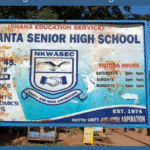
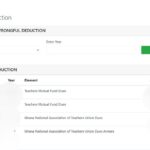
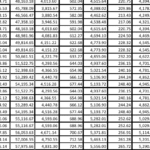
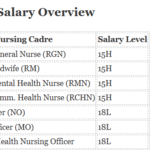
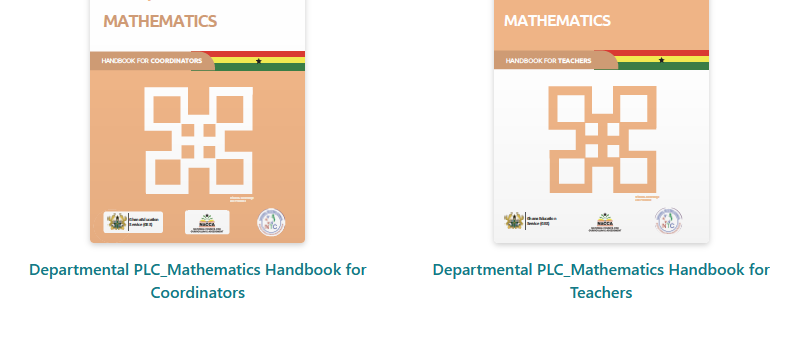
Good
Wow that is an awesome work here.
Good piece